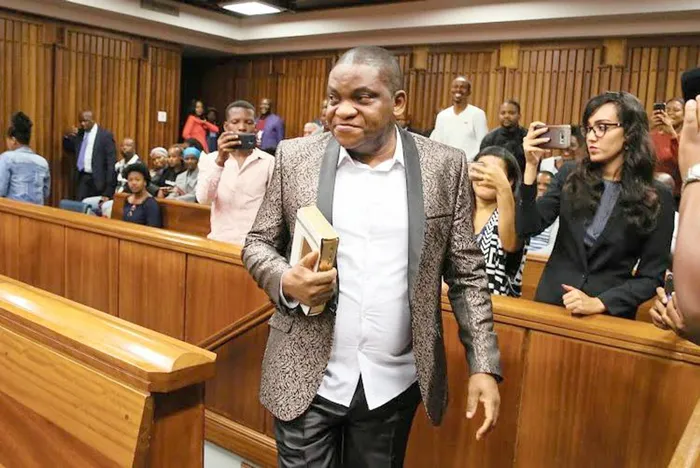Omotoso has right to hold church services where he likes, legal experts say
Free man

The controversy surrounding Pastor Timothy Omotoso's case underscores the complex intersection of justice, rights, and public accountability.
Image: IOL
After nearly eight years of legal proceedings, the case against Nigerian televangelist Pastor Timothy Omotoso was officially dropped on April 2, 2025.
Judge Irma Schoeman of the Gqeberha High Court acquitted Omotoso and his co-accused, Lusanda Sulani and Zukiswa Sitho, on all 32 charges, including rape, human trafficking, and racketeering. The court found that the prosecution failed to prove its case beyond a reasonable doubt, citing inadequate cross-examination and prosecutorial mishandling.
The case, which began in 2017, had been marred by delays and procedural challenges. Initially facing 63 charges, the number was reduced to 32 as witnesses withdrew or were unavailable to testify. Despite the acquittal, the trial has left a lasting impact on the public and legal communities.
In response to the acquittal, several human rights organisations, including the South African Human Rights Commission (SAHRC), the Commission for Gender Equality (CGE), and the Cultural, Religious and Linguistic (CRL) Rights Commission, have announced plans to launch a joint inquiry into the handling of the case. They aim to investigate the systemic failures in prosecuting gender-based violence and femicide, as highlighted by the mishandling of the Omotoso case.
Despite the legal outcome, Omotoso's return to public ministry has been met with resistance. Several churches and event venues have refused to host him or allow him to conduct religious services. Some cited concerns for community safety, while others bowed to public pressure. In Port Elizabeth, a planned revival service was cancelled after local leaders raised objections.
Legal experts, however, affirm that Omotoso retains his constitutional rights. According to Section 15 of the South African Constitution, every individual has the right to freedom of religion, belief, and opinion.
Unless a court issues an order restricting him, Omotoso has every right to hold services where he is legally permitted to do so. Constitutional law expert Professor Lerato Mokoena emphasised that the Constitution guarantees freedom of religion, and unless a court imposes restrictions, Omotoso is entitled to exercise this right.
The controversy surrounding Omotoso's case underscores the complex intersection of justice, rights, and public accountability. While the legal system has rendered its verdict, the public's response continues to evolve, reflecting broader societal debates about justice, accountability, and the protection of individual rights.
As South Africa navigates these complex issues, the question remains: can the court of public opinion be kept separate from the court of law? The ongoing discussions and inquiries will likely shape the future landscape of justice and rights in the country.